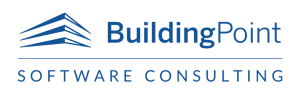Technologies are growing by leaps and bounds in the construction industry. Software is now available to help construction project managers plan better – work smarter, for the end result of awesome projects built faster.
More than in any other industry the term “best laid plans” speaks the truth. Construction project managers can account for every single aspect of a project before it is started right down to a single nail. But something will happen or get changed and the best planned project will go sideways.
Construction projects have to be looked at as somewhat fluid. Many moving parts make up the whole. So much data is being brought back to the office everyday during the project, human error happens and something is bound to be overlooked. Project managers are responsible for controlling the data flow between the field and the office, which includes: WIP reports, job cost, insurance and bonding, safety regulation, union rules, labor hours and wages, inventory, materials, change orders, email communications, RFIs, compliance data and a lot more. However, even though changes will happen to the plan, planning is essential. Construction software helps project managers plan better – work smarter to adapt during project changes. The ability to change on the fly has finally been attained thanks to the new technology available to construction companies.
“Because of the size of our industry, there is a momentum and a demand from our customers to innovate and provide more value, more cost-effective solutions, reduced timeframes, higher quality. Probably what’s enabling that more than anything right now is technology. Technology is quickly changing our industry in ways we haven’t seen before,” Dan Johnson, president of Minneapolis-based Mortenson Construction said in a recent interview with Construction Dive1. “Right now, the one that’s having the most impact for us is building information modeling (BIM), virtual design and construction. When you combine that with the collaborative tools that are now available in the advent of mobile devices, we are literally collaborating real-time, anywhere, out on the job site with all the stakeholders. That’s accelerating a lot of the innovation.”
A few of the modern technology that is available to construction companies in order for them to excel at projects:
Building Information Modeling/Virtual Design—BIM is described as instead of using many drawing sets, one coherent system of computer models is used. Multi-dimensional computer modeling helps to reduce mistakes and saves a lot of money and time. Contractors feel that they can reach new ideas and designs using BIM, making the future of the construction industry limitless.
Complete ERP system platforms—Construction companies are seeing the benefit of having all information in one place instead of multiple entries of the same data entered by different teams. Complete construction software collaborates departments such as, accounting, job costing, project management, equipment management, human resources and a lot more, all on one easy to use platform. With all the data in one system in can instantaneously, information can be analyzed at the moment it’s entered.
Document Imaging—A contractor’s office was a sea of filing cabinets, stuffed file folders, time cards, copier, invoices, etc. Now document imaging with portable scanners has let the construction contractor digitize all of their data. By archiving data with construction software, information has never been easier to store, view, combine with other project data and print out reports. Some construction management software packages allow for alerts to be set up and automates the distribution of reports to the correct individuals in the company.
Automated Workflow Devices—As we are seeing the biggest advancement in construction software, we are also seeing the most construction processes become automated. Workflows are being integrated into the construction software platforms to help with time and money. A companies whole procedure from appraisal to invoicing can be set up to happen automatically, or just a single task. Any approval-needed items will be routed to the appropriate individual in the company and they will automatically be alerted when it arrives. No more checking to see if the report has arrived fifteen times. All of this automation allows project managers plan better – work smarter.
Dashboards and Kiosks—A dashboard in a construction software program gives a snapshot of the overall project with a user friendly approach. The ability to access each area of that snapshot can be achieved right from the dashboard. Navigating through multiple software menus to find the data you need is time consuming and creates confusion. Custom dashboards puts the important information front and center on the dashboard for project managers to see. Unique kiosks are built right into the software platforms to that particular teams working on the projects can view the information that is pertinent to them. An accounting worker would see exactly what they needed to see about any given project through the dashboard, for instance.
Mobile Apps—It seems like mobile apps are being created for every aspect of life lately with the advancements being made in smartphones and tablets. The construction industry is no different and has apps that handle pre-project bidding, communication alerts, to apps that actually let project managers see plans and specs. There is an increasing number of apps out there to help construction companies improve their projects from their mobile devices.
“Managing the information is one of the biggest challenges of project management today,” said Scott Builders’ Vice President and General Manager Dallas Williams. “Modern technologies and construction software are really helping to control the information and disseminate it so it can be available and useful to our project teams.”

